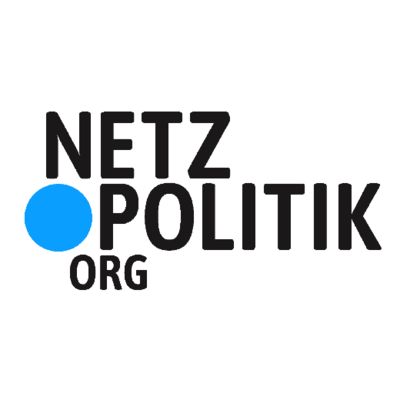NPP 184 with Lawrence Lessig: on Joi Ito, the MIT Media Lab and reputation laundering
Harvard-Professor Lawrence Lessig und sein Freund Joi Ito bei einer Veranstaltung im Jahr 2008. CC-BY 2.0 LAI Ryanne
https://netzpolitik.org/wp-upload/2019/09/NPP-184-with-Lawrence-Lessig_-on-Joi-Ito-the-MIT-Media-Lab-and-reputation-laundering-.mp3
When we scheduled this interview with Lawrence Lessig, Harvard law professor and icon of the copyright movement, we thought we’d be talking about, well, copyright. Then the story around the MIT Media Lab’s involvement with Jeffrey Epstein unfolded and Lawrence Lessig published a piece that caused quite a turmoil. In it he is writing about his friend Joi Ito, former director of the MIT Media Lab, and Ito’s secret soliciting of donations from Jeffrey Epstein, a billionaire investor who recently took his own life in prison to escape prosecution for sex trafficking and other crimes.
Subsequently Joi Ito stepped down from his position at the Media Lab and other organizations earlier this month after it became evident that he had courted Jeffrey Epstein for donations to the Media Lab and made a significant effort to hide the fact the money came from Epstein. At that time Epstein has already been convicted as a sex offender, after more than 50 women had accused him of abuse and sexual violence. Ito also took money from Epstein for his private venture capital funds and visited his Caribbean island home twice.
As the crises at the Media Lab unfolded, Lawrence Lessig was one of around 250 friends and colleagues who signed a petition in support of Joi Ito. After Ito stepped down, Lessig published an essay in which he elaborated on his reasons for supporting his friend. In it he argues that it was clearly a mistake to take Jeffrey Epstein’s money, and that he as a survivor of sexual abuse should have been the first to tell his friend Ito so.
Morally corrupt sourcesBut he also writes that most of the donations that support universities in the United States are coming from morally corrupt sources and defends the decision to hide Jeffrey Epstein’s name from the record – as making donations in his real name would have helped launder his reputation. „Everyone seems to treat it as if the anonymity and secrecy around Epstein’s gift are a measure of some kind of moral failing,“ Lessig wrote. „I see it as exactly the opposite.“
On Social Media, where the case around the Media Lab had been a focus point for days, the essay caused irritation and anger. Kate Manne, a philosophy professor at Cornell, wrote: „I think the thing that makes me angriest is that there is no mention of *the girls who were Jeffrey Epstein’s victims* in Lessig’s lousy, self-indulgent, himpathetic paean. The only victims one meets are Ito, the boyhood Lessig, and the people who worked at the MIT media lab.“
So when we had the chance to speak to Lawrence Lessig backstage after his talk at our 15th-anniversary-conference, we had a lot of questions – most of them unrelated to Free Software, Creative Commons and other concepts he helped pioneer. Alexander Fanta and Chris Köver spoke to him about Jeffrey Epstein, Joi Ito and the complicity of the MIT, which knew about all of this while it was going on.
(Trigger warning: sexual abuse. Questions about Epstein and the Media Lab start at 10:10.)
Shownotes:
- Lawrence Lessig: On Joi Ito and MIT (Medium)
- Petition: In Support of Joi Ito (archive.org)
- Ronan Farrow: How an Élite University Research Center Concealed Its Relationship with Jeffrey Epstein (New Yorker)
- Julie K. Brown: How a future Trump Cabinet member gave a serial sex abuser the deal of a lifetime (Miami Herald)
- Evgeny Morozov: The Epstein scandal at MIT shows the moral bankruptcy of techno-elites (Guardian)
- Kate Manne: Thread on Lawrence Lessig’s Essay (Twitter)
- John Naughton: How MIT was complicit in allowing Jeffrey Epstein to launder his reputation (Guardian)
- President of MIT admits approving Jeffrey Epstein donation (Guardian)
- Lessig mentions Shaka Senghor as an example of someone who committed a terrible crime, in this case murder, and has later atoned for it. Here’s Senghor’s page at the MIT Media Lab
NPP is a monthly podcast by netzpolitik.org. You can download this episode as an mp3-file, an ogg-file or subscribe on Spotify. Got feedback? Let us know what you think about this episode.
Hilf mit! Mit Deiner finanziellen Hilfe unterstützt Du unabhängigen Journalismus.
